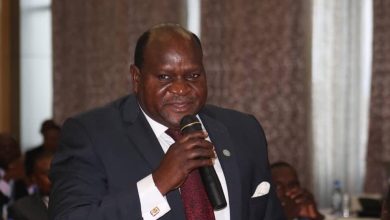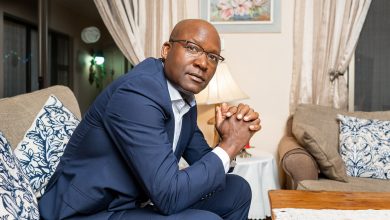Legal Aid Bureau has new head
Effective July 1, 2025, the Legal Aid Bureau (LAB) has a new director in seasoned lawyer Chimwemwe Chithope-Mwale. He replaces Trouble Kalua who was appointed High Court of Malawi Judge in August last year. In this interview our News Analyst LUCKY MKANDAWIRE talks to CHITHOPE-MWALE on his vision and other challenges affecting the bureau. Excerpts:

Q. What is your reaction to the appointment as LAB director?
A I thank God and the Public Appointments Committee for entrusting me with this huge and noble responsibility. I thank my amazing family, colleagues at LAB, professional acquaintances, and the government for appreciating my vision and mission and supporting me during the 10 months I have been acting director.
Q What is your vision to help the bureau consolidate and sustain its gains?
A My vision is to build on the current gains and record more milestones, including faithfully implementing LAB’s 2024-2029 Strategic Plan. Broadly, the goal is to enhance the bureau’s capacity and efficiency to offer quality legal aid services to many deserving persons, and ensure access to justice for all in line with Sustainable Development Goal 16, Agenda 2063, and Malawi 2063.
Q What does the broad goal entail?
A It entails so many things. Among them, expanding the bureau’s offices beyond the current 22 offices in 21 districts to all districts in Malawi; lobbying government and development partners for sufficient financial resources for our operational requirements and ensuring sufficient staff complement, capacity-building, and staff welfare through adequate establishment warrant, better conditions of service, better working environment, upskilling and career progression. Otherwise, without sufficient, competent, and motivated human resource, we cannot make significant strides. I also intend LAB to address legal fetters in the provision of legal aid.
Q Anything more to you vision?
A Among others, I want LAB to resuscitate the dialogue on paralegals’ limited right of audience in subordinate courts with relevant stakeholders. It is a remedy that takes into account our socioeconomic conditions and challenges, and is already used in the judiciary and by the prosecution. Noteworthy, it is recognised as an option for developing countries with access to justice challenges under the 2012 United Nations Principles and Guidelines of Access to Legal Aid in Criminal Justice Systems.
Q How do you intend to effectively bring justice closer to the indigent and vulnerable people?
A We will open more offices to ensure sufficient presence in all districts. We are already on course to open the Nkhata Bay office this year as our 23rd office. We will also conduct more awareness campaigns through print and electronic media, including social media. Since not all indigent persons can be reached through that, we will also conduct more in-person public awareness campaigns in remote areas and prisons. Furthermore, we will produce and distribute more information, education, and communication (IEC) materials. We will frequently engage the media to help spread the message about ourselves – you play a critical role in disseminating information. We will also recruit more relevant personnel. I already engaged the government to create more positions in our public relations department. Currently, we have only one post, which is inadequate. Finally, given that visibility largely hinges on financial resources, I will continue to lobby for more financial resources.
Q The bureau, just like many government agencies, faces several key challenges, how will you ensure they do not affect the delivery of justice?
A I will continue lobbying the government, development partners, and collaborating with other stakeholders for financial and technical support. As mentioned above, lobbying has already led to enhanced financial resources. It has also led to the government approving funds for the recruitment and promotion of 38 employees to strengthen the workforce. Further, we will nurture and strengthen the working relationship with the current development partners and stakeholders such as the European Union, United Nations Development Programme (UNDP), Irish Rule of Law International, Reprieve (UK), Southern African Litigation Centre, Malawi Human Rights Commission, Ombudsman, Chreaa, and Pasi. Additionally, I plan to secure fresh partnerships with new development partners and stakeholders.
Q What is the recommended number of lawyers to effectively offer free legal services?
A Currently, we have 48 licensed legal practitioners, handling over 28 000 cases across Malawi. On average, that entails one legal practitioner handling over 550 cases. We need at least double the current number to manage to serve more clients and serve them better.
Q How many civil and criminal cases is the bureau handling?
A We have 18 692 civil cases and 10 131 criminal cases. Land matters top the list, standing at 5 704, followed by matrimonial matters at 3 391 cases, and contract matters at 3 004 cases.
Q Your last comment?
A I will use my over 14 years of professional experience and qualifications in the human rights space to enhance the capacity of the institution and the quality of legal aid services. I will mentor my subordinates and link them up with my networks, both domestically and internationally, to ensure a strong and effective institution and enhanced access to justice for all. I will also use my experience to help the bureau enhance the utilisation of the regional and international human rights systems, beyond the domestic system, in the promotion and protection of human rights.





